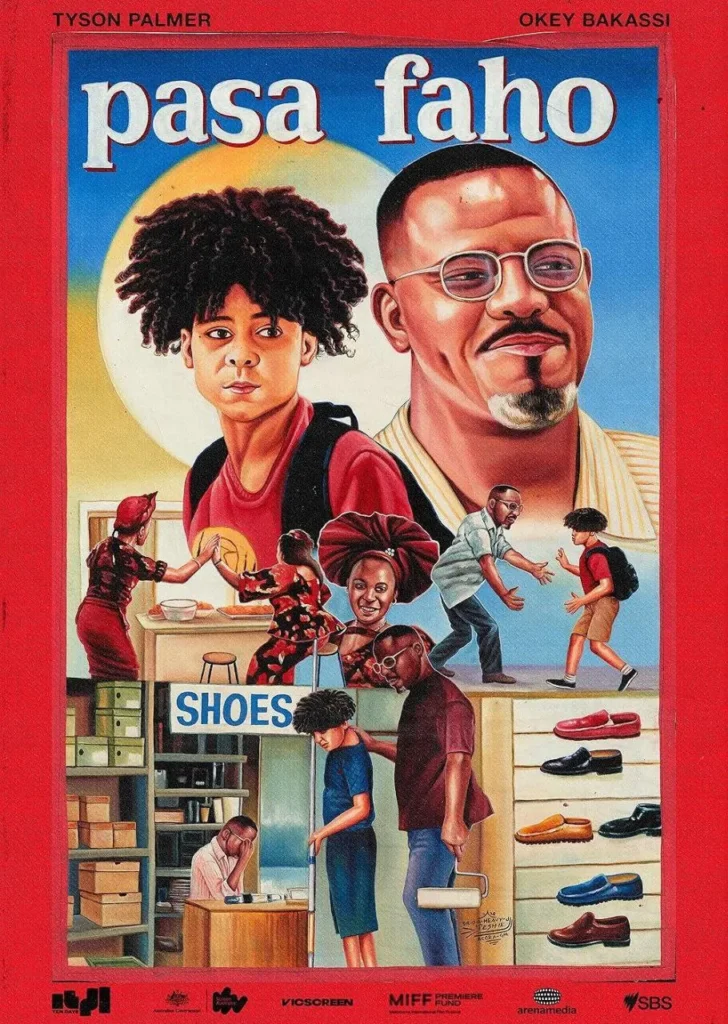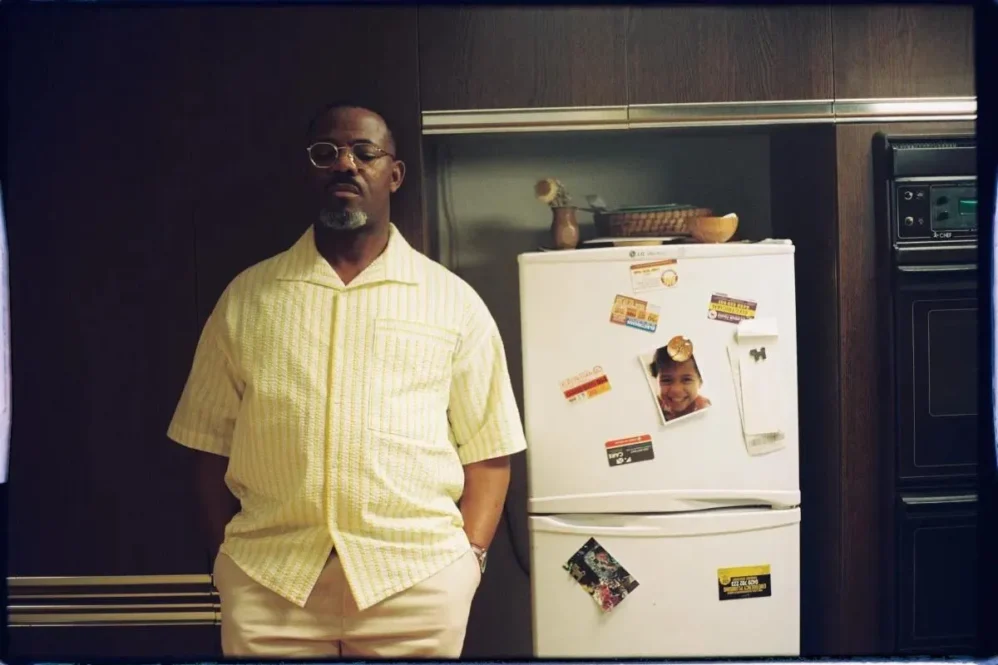AFRIFF: From the beginning of Pasa Faho, Igbo is front and centre in suburban Melbourne in Australia. The soundtrack plays Peter King’s “Jo Jolo” as the white people go about their business on the street. The camera then finds Azubuike in his shoe shop, where he helps a customer try on shoes. He teases her, saying that she’ll now become the most stylish person in the neighbourhood—stealing that title from him. It’s a brief but effective character introduction: an Igbo man who loves his business.
(Click to Follow the What Kept Me Up channel on WhatsApp)

Directed and written by Nigerian-Australian filmmaker Kalu Oji, Pasa Faho (a stylistic play on words “parts of a whole”) tells the story of Azubuike, a shoe salesman’s struggle to save his business while taking care of a son he’s getting to know again. Unfolding slowly and steadily, it radiates a parental warmth that has crossed borders and evolved just like the culture of immigrants.
This comedy drama weaves through many immigrant conversations with ease and quiet, never staying long enough to proselytise but staying long enough to subtly hint at its thematic leanings which are sometimes too many to handle. Conversations about the name of an immigrant’s son, religion’s role as both community and foe, training a child within a culture but still holding space for change, and the trappings of immigrant pride all form the tapestry of a film that’s ultimately about a father’s love for his son and his struggle to not disappoint.
Nigerian comic act Okey Bakassi (Bank Alert) as the father captures this struggle with an understated expertise never before seen from him. He straddles pensiveness, anger and humour as a man in crisis that must remain steady for his son. In one car scene, he asks his son what he wants for dinner. He’s clearly bothered by his business going down but keeps a smile for his son, Obinna— played by Tyson Palmer in an assured breakout performance that matches his co-star with ease. The rest of the cast speaks primarily in Igbo and sometimes stumble over the language, but never detracts from the film’s immigrant focus.
Oji matches this ensemble’s intimacy with equally attentive cinematography—measured landscape shots and tight closeups framing every face and reaction unflinchingly. We see where beards connect, where pigments colour the skin and the vibrant colours of the clothes that mirror a certain early 2000s aesthetic despite its modern setting. The warmth of the colours grounds the film’s tone and keeps the story alive.
Contributing to that is a classical score guided by an oboe and violins combined with classic Igbo highlife songs, Celestine Ukwu’s “Ife Si Na Chi” and the modern “Osondu” by The Cavemen, reflecting the evolution of love and culture that immigration brings.
Pasa Faho takes a unique place among immigrant-centred films by Nigerians in diaspora not just because of where it’s set but because it asks questions of not just fatherhood but immigrant fatherhood. Our lead Azubuike, stands in a special place where Igbo pride meets immigrant anxiety and Oji sweeps the corners of that space, interrogating how fatherhood and love must evolve along with culture as we cross borders. It tells us that the most important things to pass on to your children are intangible and often not known till you see parts of you—good and bad—begin to show up.
Pasa Faho screened at the 14th edition of Africa International Film Festival.
Become a patron: To support our in-depth and critical coverage—become a Patron today!
Join the conversation: Share your thoughts in the comments section or on our social media accounts.
Side Musings
- If My Father’s Shadow made you miss your father, Pasa Faho will make you want to have a son.
- Okey Bakassi is funny in a way that doesn’t distract in this film, very refreshing.
- There’s a scene where Amaka, Azubuike’s sister, nibbles at puff puff that’s so stressful. Nobody should be eating puff puff like that.




